surbate
v. to make one’s feet sore
Search Results for: in a word
In a Word

tsundoku
n. the practice of acquiring reading materials but letting them pile up in one’s home without reading them
In a Word
astriferous
adj. bearing or containing stars; starry
stelliferous
adj. filled with stars; starry
In a Word
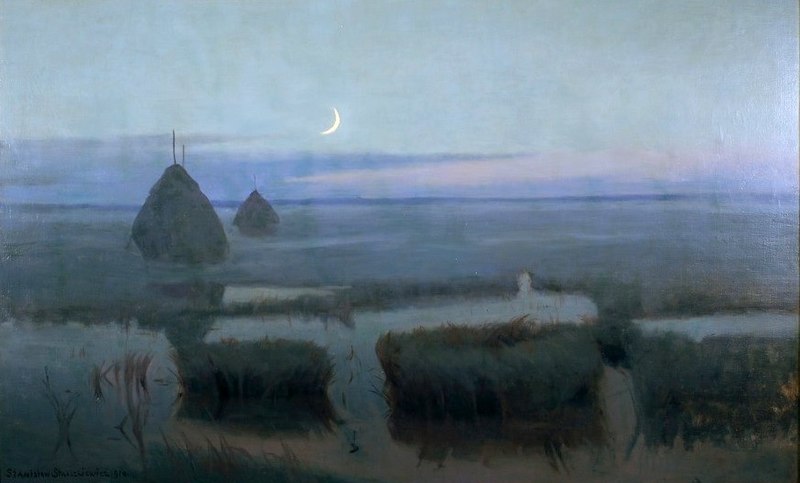
crepuscule
n. twilight
(Stanislaw Straszkiewicz, Zmierzch, 1910.)
In a Word
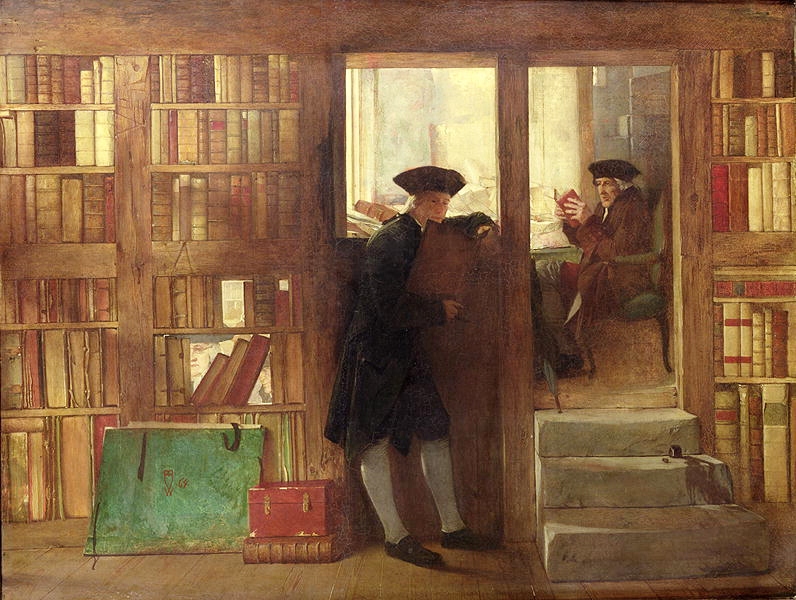
bibliobibuli
n. the sort of people who read too much
In a Word
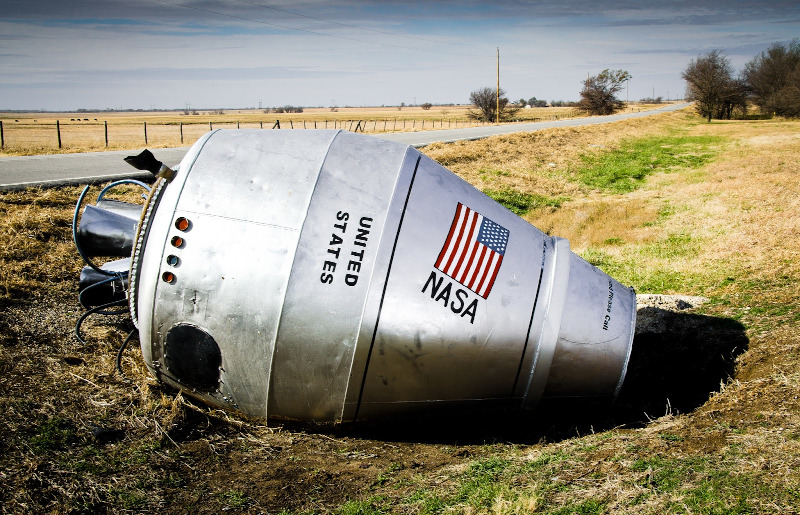
peisant
adj. having great weight
dissight
n. an unsightly object, an eyesore
bonification
n. the action of making something good or better
subrident
adj. accompanied by a smile
In 1959, a cement mixer rolled off a road in northeastern Oklahoma. The owners retrieved the truck, but the mixer held tons of concrete and was too heavy to move. Plans to bury it on the spot were eventually abandoned, and the disused mixer lay for decades beside Winganon Road. In 2008 Heather Thomas and her husband, Barry, decided to celebrate their fifth anniversary by finally attending to the matter — they disguised in as a space capsule.
(Thanks, Colin.)
In a Word
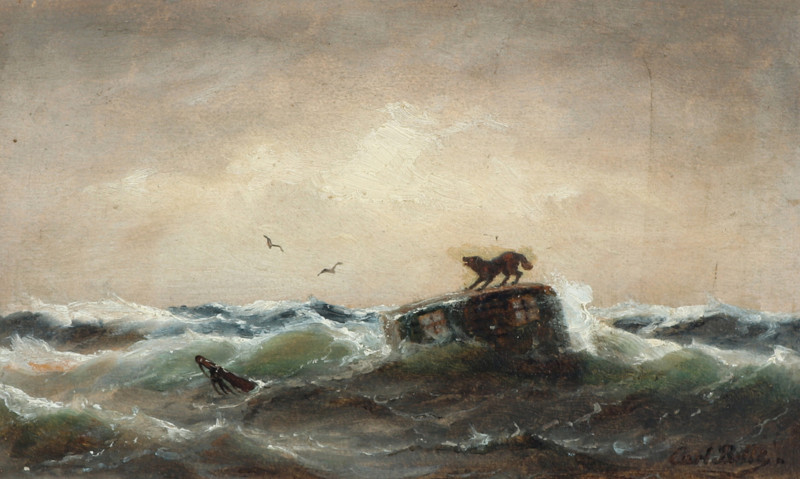
thalassic
adj. of or relating to seas and oceans
dégringolade
n. a quick deterioration or breakdown, as of a situation or circumstance
supersalient
adj. leaping upon
sperate
adj. hoped for; not hopeless
Shipwreck With a Surviving Dog, by the Danish artist Carl Bille (1815–1898).
In a Word
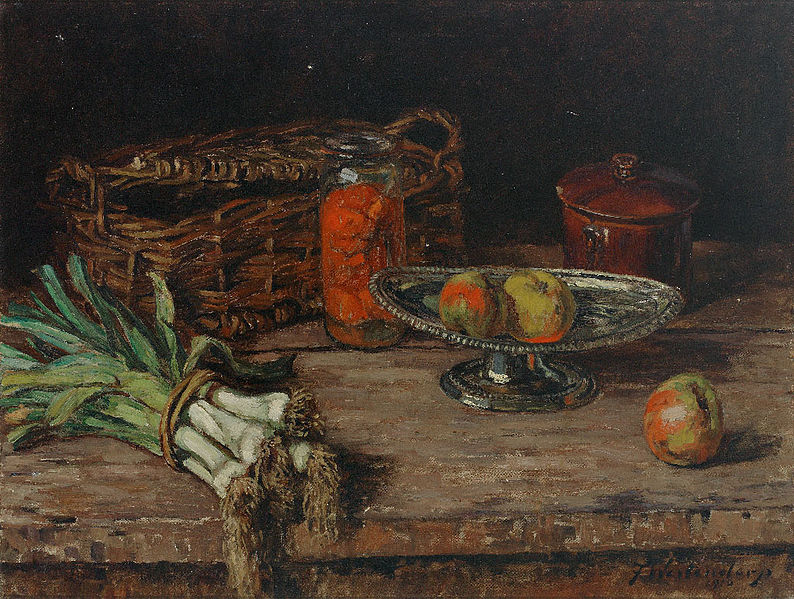
prasophagy
n. the eating of leeks
In a Word
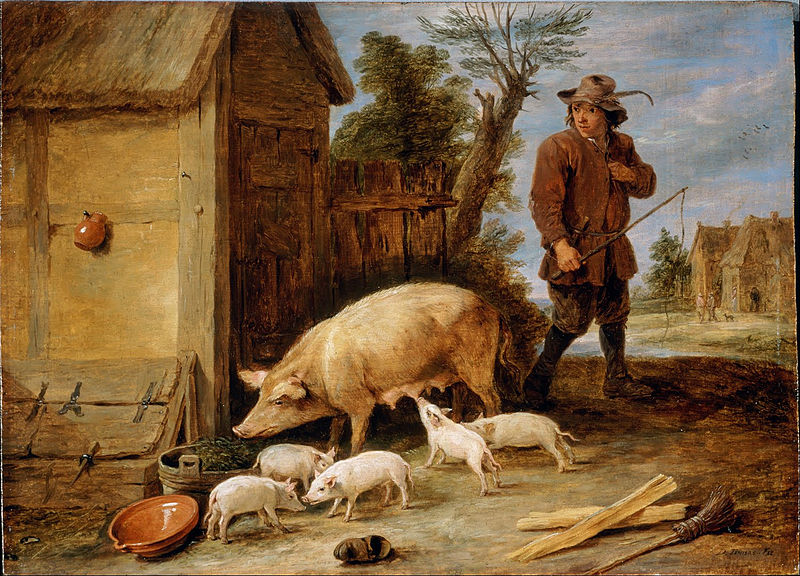
sybotism
n. the tending of swine
In a Word
philobiblist
n. a lover of books
Created by Slovakian artist Matej Kren, the Idiom Installation in Prague’s municipal library seems to present an infinite tower of books, thanks to some conveniently placed mirrors.
It debuted at the São Paulo International Biennial in 1995 and moved permanently Prague in 1998.
